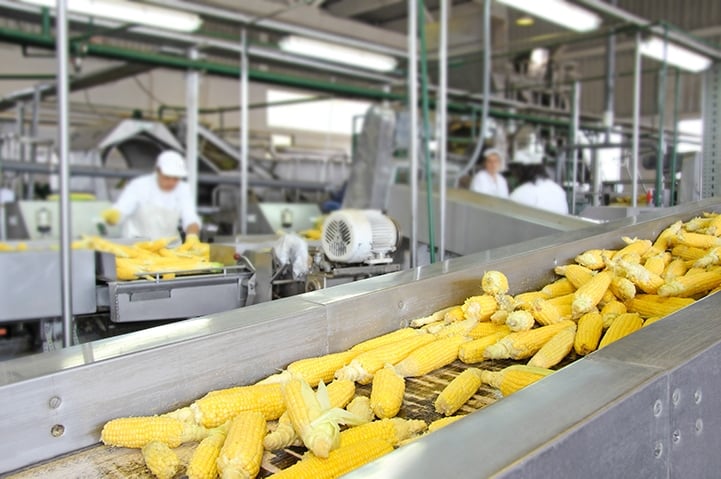
In the Food & Beverage industry, there are a great number of people, suppliers, distributers, and processing steps involved in order for raw materials to become finished goods that are then consumed by customers.
With supply chains now extended across the globe, complexity has increased exponentially, making supply chain traceability more important than ever.
Read on as we define the purpose of traceability and its crucial role in ensuring food safety.
Traceability And Food Safety In The Food & Beverage Industry
According to the FDA, approximately “48 million people in the U.S. (1 in 6) get sick, 128,000 are hospitalized, and 3,000 die each year from foodborne diseases, according to recent data from the Centers for Disease Control and Prevention. This is a significant public health burden that is largely preventable.”
In addition to the crucial issue of public health, food safety problems can also have significant impact on the well-being of industries and the people that depend on them — a 2011 publication by the Consumer Brands Association estimated the average cost to a company for a food recall is around $10 million. Earlier this year, the J.M Smucker company recalled its Jif peanut butter products from shelves to the tune of around $125 million according to their quarterly earnings report.
Traceability is key to avoiding such high costs in public safety, lives and livelihoods.
Traceability is defined by the Codex Alimentarius Commission (CAC) [1] as: “The ability to follow the movement of a food through specified stage(s) of production, processing and distribution”.
The purpose of traceability in food safety is for manufacturers to be able to trace the movement of food products end-to-end across the supply chain, so that they can pinpoint the source of any potential issue and identify the scope of the event. With traceability, when incidents occur that threaten food safety, manufacturers can access precise information that allows for quick diagnosis and a prompt, decisive response to mitigate the damage.
Furthermore, the purpose of traceability in food safety extends to preventative measures, as it enables manufacturers to determine the source of problems with such accuracy that they can implement changes that prevent future issues from occurring.
How can companies increase supply chain traceability for increased food safety?
Industry 4.0 initiatives are setting new standards for establishing end-to-end traceability from raw materials to finished goods in all industries, with particular importance in the Food & Beverage industry for increasing food safety and preventing recalls.
Big data technology and the Industrial Internet of Things (IIoT) facilitate the tracking of material flow and material flow analytics for unprecedented levels of supply chain traceability. Physical sensors can be installed to collect data that identifies material movements, quality attributes, and other critical information. A material flow analytics platform then uses these data points to identify granular correlations that can help to effectively understand and then address issues.
Having an Industry 4.0 Smart Manufacturing system in place that can track and trace every point along the supply chain as food and beverage products travel from “farm to fork” is the best way for manufacturers to access the traceability they need to protect their customers and their company from the fall out of food safety events.
From "Farm To Fork" - Food Safety And Supply Chain Traceability With Industry 4.0 Smart Manufacturing
With the complexity of supply chains, regulations, and manufacturing processes today, traceability empowers food manufacturers with the agility and control over their operations to overcome and even prevent future food safety challenges.
ThinkIQ is a pioneer in Transformational Intelligence for manufacturers — our Smart Manufacturing transformation platform delivers a fact-based, granular and data-centric view of material flows that integrates into existing IoT infrastructures, and crosses supply chains to manufacturing processes and beyond.
With ThinkIQ, manufacturers have realtime visibility and traceability across every step and every supplier in their supply chain — a fundamental key to ensuring food safety. ThinkIQ technology can collect specific attributes at each step and uncover anomalies along the way with efficiency and accuracy, so Food & Beverage manufacturers can have more control over their preventative and recovery processes.
Manufacturers need a more precise understanding of their manufacturing data in order to better fine tune their operational execution for the utmost in food safety — and ThinkIQ is providing the best of supply chain data analytics and traceability that makes it possible.
Advanced traceability, unparalleled food safety — Contact a ThinkIQ expert to start the ball rolling on a traceability transformation for your organization. Also, be sure to download our new eBook, “Using Computer Vision to Fill Manufacturing and Warehousing Blind Spots with Actionable Data” to learn how to gain greater visibility into your manufacturing process.


